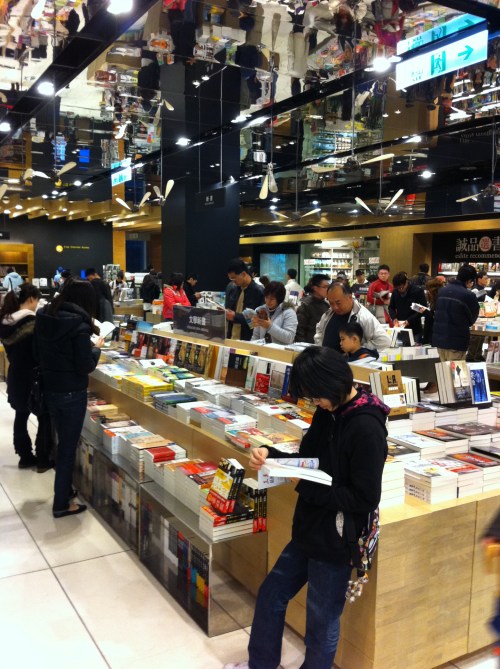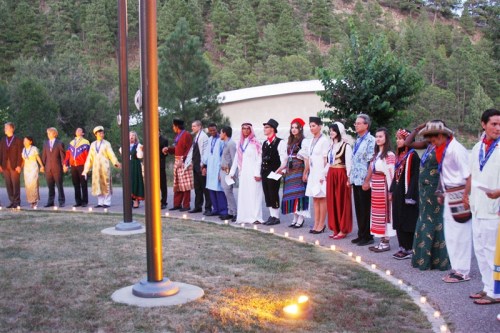Today I have an update to my last entry which I titled Biggest Flop 2010. Quite honestly I am hardly surprised to see the latest development based on my earlier observation. Since the disaster in securing top management buy-in, the organization is now put in a very vulnerable situation. The business lines are all taking a bite off the procurement department, and its head is constantly kept in a defensive mode. He is often summoned by other department heads to provide quick fixes that are hardly strategic or measurable. The middle to upper management team is always called for ad hoc customer meetings where they have little idea how to respond, and whether or not to make certain commitments due to limited departmental resources. The organization is in a complete state of chaos.
Based on the unfavorable circumstances, I can offer a few recommendations which can hopefully improve morale and make the situation slightly more bearable.
1. Salvage the situation
For the immediate period, nothing much can be done in terms of changing the corporate management’s views. The best tactic is to embrace it gracefully, while striving to develop success cases from the ground up. Having top-down mandate is ideal, but it’s not the end of the world even with its absence. This is how true leadership emerges and shines. Pick the best people to put in front of selected customers where there is the highest hope to succeed both in terms of quality assurance, savings potential and improved efficiency. Convince the customers upfront that you are not expecting anything from them other than their cooperation. Work from the bottom up. Take care of all the paperwork, liaise with legal, compliance, finance and investigation, represent the clients well in front of suppliers, and make the customer experience a pleasant one.
All this is needed to be put into the credits bank so that when the right moment comes, these customers are going to root for you in front of top management. The best salesmanship technique is to have your customers sell for you, instead of doing so yourself.
2. Renegotiate goals
Now is the golden time to renegotiate goals. Since a substantial spend area is taken away, the cost savings expectation should be adjusted. In every case, link addressable spend with potential savings as tightly as possible, even if we know it may not always be a directly proportional relationship. Merely negotiating terms and conditions without having the power to affect sourcing decisions will not bring in cost savings. The moment top management is convinced and concerned over lost savings, they will change their minds and come knocking.
3. Retreat
For the spend area that is taken away (in this case above-the-line marketing), retreat completely. Follow exactly the order of top management. I am more than happy to be a good corporate citizen all along, but since my contribution is now deemed useless by corporate, I won’t be uttering a word. In my many years of corporate experience, there will be plenty of crisis situations soon enough (knock on wood) where marketing will come screaming for help. Their major supplier is asking for a 50% price increase and they are left with no alternatives. The supplier is claiming structural damages compensation for incidents that need mediation. The company is undergoing corruption and antitrust investigations by the local authorities. Marketing is being criticized by internal and external auditors for their approval and authorization inadequacies. When they come knocking – sorry, I can’t comment since I was not involved in the first place.
This isn’t meant as petty revenge, but no one will appreciate the criticality of a function (procurement) until they are bombed with crisis situations. Let these risks speak for themselves.
4. Energize the team
No matter how one keeps the recent top management discussions in closed wraps, everyone in the procurement team will hear about it in less than 2 hours. Words spread fast, especially bad news. The team is going to view it as failure of the leader, and all these rumors are devastating.
Leaders should address the team in plain language, and advocate that this is all just a transitional phase. Unity is crucial. The function’s credibility should never be tainted. And leaders are working on renegotiating the goals with top management only as a tactic to regain power.
When team members understand the leaders’ plan of attack, there will be better hopes of instilling confidence and morale.
5. Contain the virus
Keep your ground and don’t let the same happens with other business units or spend areas. There is a likelihood that other business leaders will follow suit and take a shot of procurement. Visit these leaders and explain to them of this exceptional and transitional development. If they have concerns, ask them to come to you instead of escalating straight to the COO. Depending on the party, different tactics may need to be deployed, ranging from “be your buddy” to scare tactics. You just cannot afford to have more spend areas fall through. Otherwise, you may as well propose to have the whole function redesigned as a purely operational cost center with no cost savings responsibility. The function can then be outsourced to India, Philippines, or China!
Well, these are the top 5 steps that I can think of almost immediately. Will they adopt any of that in the near future? That’s what I am eager to find out soon.






































